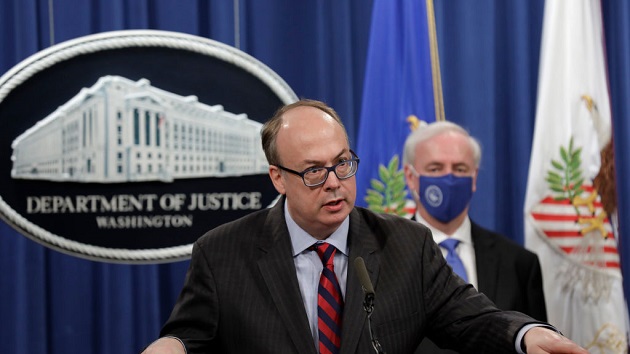
(WASHINGTON) — The Supreme Court on Friday ruled to overturn Roe v. Wade and the fundamental right to abortion that has been the law for almost 50 years.
The court ruled 6-3, in an opinion written by Justice Samuel Alito, who called Roe “egregiously wrong from the start.”
The court upheld a Mississippi law that bans all abortion past 15 weeks, with very few medical exceptions.
The court also overturned Roe v. Wade and Casey v. Planned Parenthood, two landmark decisions legalizing abortion nationwide.
Alito also wrote the bombshell draft opinion leaked to the public earlier this year. The three liberal justices dissented.
Alito wrote that the Constitution “does not confer a right to abortion,” stating it is ultimately up to the states to regulate abortion access.
“Abortion presents a profound moral question,” Alito wrote. “The Constitution does not prohibit the citizens of each State from regulating or prohibiting abortion. Roe and Casey arrogated that authority. The Court overrules those decisions and returns that authority to the people and their elected representatives.”
In their dissent, Justices Stephen Breyer, Sonia Sotomayor, and Elena Kagan lamented that millions of American women will lose a right because of the court’s decision.
“It says that from the very moment of fertilization, a woman has no rights to speak of,” their dissent reads. “A State can force her to bring a pregnancy to term, even at the steepest personal and familial costs. An abortion restriction, the majority holds, is permissible whenever rational, the lowest level of scrutiny known to the law.”
The three justices also pushed back on the majority’s reasoning that each state can address abortion access as it pleases.
“That is cold comfort, of course, for the poor woman who cannot get the money to fly to a distant State for a procedure,” they wrote. “Above all others, women lacking financial resources will suffer from today’s decision.”
Since Roe v. Wade in 1973 and Planned Parenthood v. Casey in 1992, the court has forbidden states from banning abortions prior to fetal viability outside the womb, roughly 24 weeks, according to medical experts.
Mississippi had argued that Roe and Casey were wrongly decided and that each state should be allowed to set its own policy.
Jackson Women’s Health, the state’s only remaining abortion clinic, argued that the high court’s protection of a woman’s right to choose abortion is clear, well-established precedent and should be respected.
After oral arguments in December, a majority of justices voted initially to side with Mississippi, according to a leaked first draft opinion by Justice Samuel Alito published by Politico in early May and confirmed to be authentic by Chief Justice John Roberts.
Majorities of Americans have long supported upholding Roe v. Wade and oppose state bans on all abortions, according to ABC News/Washington Post polling.
But Americans appear more divided on the type of ban at issue in Mississippi. A Marquette University Law School poll late last year found 37% favored upholding a 15-week ban, with 32% opposed.
Mississippi’s sole clinic only performs abortions up to 16 weeks.
As the Supreme Court case was pending, several Republican-led states enacted unique laws that effectively circumvent constitutional protections for abortion.
Texas’ SB8 — a near-total ban on abortions — took force in September, deputizing everyday citizens to sue anyone who “aids or abets” an illegal abortion. Oklahoma recently implemented a similar citizen-enforced measure that bans all abortions, with only exceptions for rape, incest or the life of the mother.
The Supreme Court ruled last year that it could not intervene to block the state laws.
Twenty-six states are considered certain or likely to ban abortions following a Supreme Court decision overturning Roe, according to the Guttmacher Institute, which supports abortion rights. Fourteen states plus Washington, D.C., have laws explicitly protecting access to abortion care.
The ruling is the Court’s most significant on abortion rights in years and the first for the current 6-justice conservative majority with Justice Amy Coney Barrett.
This is a developing story. Please check back for updates.
Copyright © 2022, ABC Audio. All rights reserved.









